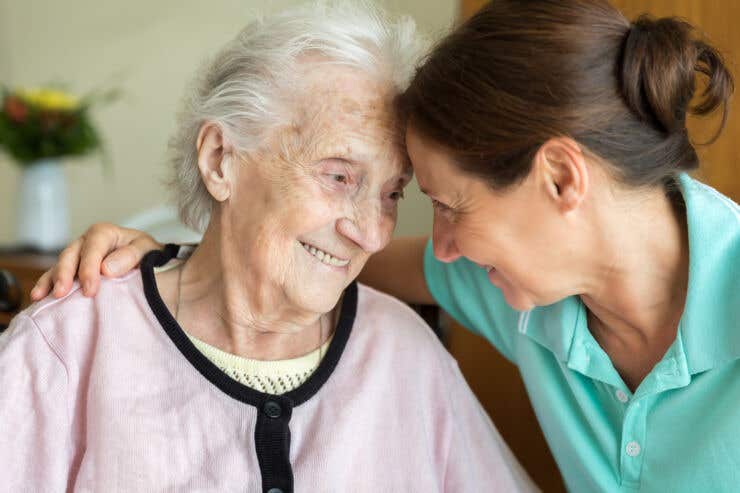People with dementia can still learn new things, study finds
Despite the severe memory impairment inherent to dementia, affected individuals still retain the ability to learn and adapt to new tasks.

[July 4, 2023: Staff Writer, The Brighter Side of News]
New insights into the cognitive capabilities of individuals living with dementia have surfaced. (CREDIT: FredFroese)
New insights into the cognitive capabilities of individuals living with dementia have surfaced in the wake of a groundbreaking study from Linköping University, Sweden. The doctoral thesis, recently presented by Elias Ingebrand, argues that despite the severe memory impairment inherent to dementia, affected individuals still retain the ability to learn and adapt to new tasks.
Historically, dementia has been synonymous with irreversible cognitive decline and an erosion of personality, reducing patients to so-called 'empty shells.' However, Ingebrand’s seminal work suggests a paradigm shift, challenging long-held beliefs around the cognitive capabilities of dementia patients.
"My thesis has an impact on how we look at people with dementia. They are not to be treated as children, but as people who still have a will and an incentive to do things. This is ultimately about having the opportunity to participate in meaningful activities based on the person’s own interests and desires,” Ingebrand stated.
At the heart of the study was a remarkably simple, yet effective approach: providing ten dementia patients with a tablet, a piece of technology most of them had never used. A staff member or a loved one accompanied the participants, not to provide guidance, but to observe their interaction with the device. All the participants were instructed to use the tablet freely, according to their wishes.
Related Stories
Much to Ingebrand's surprise, the tablets soon sparked curiosity among the dementia patients. Ingebrand confessed, “I was rather surprised at this. I may have expected that it would just lie there and that they would talk about something else, but we saw that they focused their attention on it.” Thus, initiating the fascinating journey of discovery that would span 4–6 weeks.
While the study group was relatively small and composed mostly of those residing in care facilities, the findings were impactful. Despite significant memory loss, participants gradually learned how to operate the tablet with increasing independence.
Ingebrand attributes this newfound proficiency to the 'muscle memory' phenomenon, where repeated physical movements become ingrained, and can be recalled even when the cognitive ability to discuss such actions has deteriorated.
People with dementia can still learn new things, according to Elias Ingebrand. (CREDIT: Jonas Roslund)
One participant, a former orienteer, began using the tablet to check competition results. Another, a man formerly restless and aggressive, learned to navigate to the Open Archive of SVT, the Swedish public television broadcaster, and began watching content calmly and attentively. This previously unseen demeanor intrigued the staff.
One of the most remarkable discoveries of the study was the propensity for participants to assist each other. Despite having no prior experience with the technology, and little to no assistance from staff or relatives, dementia patients were seen collaborating and teaching each other how to navigate the tablet. Ingebrand noted that he was not aware of any previous studies that explored collaboration between dementia sufferers.
Prior research has indeed suggested that individuals with dementia can learn new things, such as remembering nonsense words or the names of random individuals. However, Ingebrand's study extends this understanding, highlighting that spontaneous and interest-driven learning can occur, even in the absence of explicit instruction. Furthermore, the tangible results of this newfound knowledge can be directly applied in caregiving.
Elias Ingebrand. (CREDIT: Jonas Roslund)
The implications of Ingebrand's research extend beyond the immediate dementia care environment. His findings present a challenge to care facility staff, who often have tight schedules and limited resources, but also opens a new avenue for collaborative activities among dementia patients. Ingebrand postulates, “Letting people with dementia do things in collaboration could be a solution worth trying.”
While the study focused primarily on tablet use, Ingebrand believes the results reflect a broader application to other forms of learning.
“I want to take my research further by finding out how to make use of the knowledge and expertise of people with dementia in creating meaningful activities. Maybe someone could initiate an activity and teach others in the care facility. Perhaps a small seminar, or knitting. The right to lifelong learning should include everyone; the important thing is getting a chance to learn.”
Ingebrand's research challenges the deeply entrenched societal beliefs around dementia, presenting new perspectives on their capabilities and their right to engage in meaningful activities. His findings advocate for a shift in dementia care that respects the individual's ability to learn, adapt, and contribute, even in the face of significant cognitive challenges.
This compelling new perspective could potentially reshape the future of dementia care, providing dementia patients with more dignity, agency, and quality of life.
Note: Materials provided above by The Brighter Side of News. Content may be edited for style and length.
Like these kind of feel good stories? Get the Brighter Side of News' newsletter.



